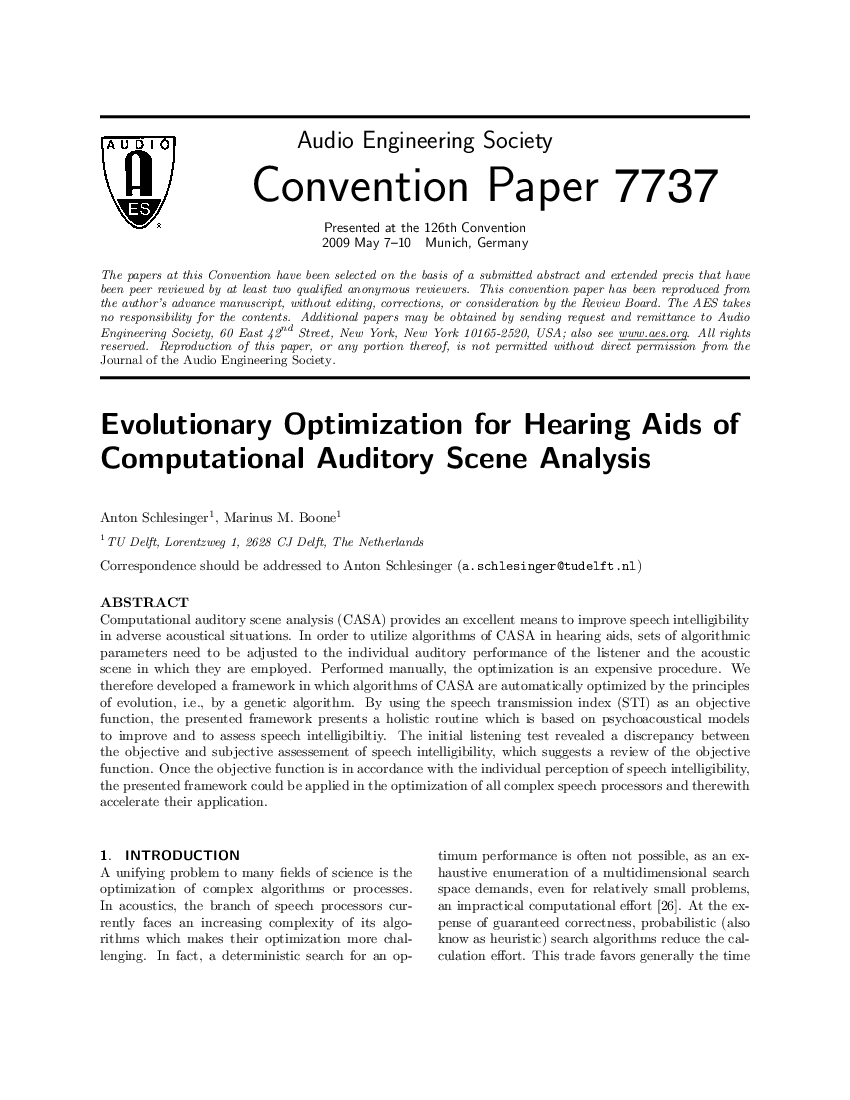Home / Publications / E-library page
You are currently logged in as an
Institutional Subscriber.
If you would like to logout,
please click on the button below.
Home / Publications / E-library page
Only AES members and Institutional Journal Subscribers can download
Computational auditory scene analysis (CASA) provides an excellent means to improve speech intelligibility in adverse acoustical situations. In order to utilize algorithms of CASA in hearing aids, sets of algorithmic parameters need to be adjusted to the individual auditory performance of the listener and the acoustic scene in which they are employed. Performed manually, the optimization is an expensive procedure. We therefore developed a framework in which algorithms of CASA are automatically optimized by the principles of evolution, i.e., by a genetic algorithm. By using the speech transmission index (STI) as an objective function, the presented framework presents a holistic routine which is solely based on psychoacoustical and physiological models to improve and to assess speech intelligibiltiy. The initial listening test revealed a discrepancy between the objective and subjective assessement of speech intelligibility, which suggests a review of the objective function. Once the objective function is in accordance with the individual perception of speech intelligibility, the presented framework could be applied in the optimization of all complex speech processors and therewith accelerate their assessment and application.
Author (s): Schlesinger, Anton; Boone, Marinus M.
Affiliation:
TU Delft, Delft, The Netherlands
(See document for exact affiliation information.)
AES Convention: 126
Paper Number:7737
Publication Date:
2009-05-06
Import into BibTeX
Session subject:
Hearing
Permalink: https://aes2.org/publications/elibrary-page/?id=14933
(436KB)
Click to purchase paper as a non-member or login as an AES member. If your company or school subscribes to the E-Library then switch to the institutional version. If you are not an AES member Join the AES. If you need to check your member status, login to the Member Portal.

Schlesinger, Anton; Boone, Marinus M.; 2009; Evolutionary Optimization for Hearing Aids of Computational Auditory Scene Analysis [PDF]; TU Delft, Delft, The Netherlands; Paper 7737; Available from: https://aes2.org/publications/elibrary-page/?id=14933
Schlesinger, Anton; Boone, Marinus M.; Evolutionary Optimization for Hearing Aids of Computational Auditory Scene Analysis [PDF]; TU Delft, Delft, The Netherlands; Paper 7737; 2009 Available: https://aes2.org/publications/elibrary-page/?id=14933